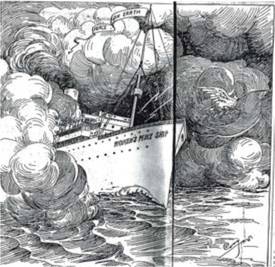Inauguration 2017 Special Coverage w/ Angela Davis, Naomi Klein, Ralph Nader & More
Menu

Special coverage in the Trump Era
From Public Citizen's Corporate Presidency site: "44 Trump administration officials have close ties to the Koch brothers and their network of political groups, particularly Vice President Mike Pence, White House Legislative Affairs Director Marc Short, EPA Administrator Scott Pruitt and White House budget director Mick Mulvaney."
Dark Money author Jane Mayer on The Dangers of President Pence, New Yorker, Oct. 23 issue on-line
Can Time Inc. Survive the Kochs? November 28, 2017 By Jane Mayer
..."This year, among the Kochs’ aims is to spend a projected four hundred million dollars in contributions from themselves and a small group of allied conservative donors they have assembled, to insure Republican victories in the 2018 midterm elections. Ordinarily, political reporters for Time magazine would chronicle this blatant attempt by the Kochs and their allies to buy political influence in the coming election cycle. Will they feel as free to do so now?"...
"Democracy in Chains: The Deep History of the Radical Right’s Stealth Plan for America" see: our site, and George Monbiot's essay on this key book by historian Nancy MacLean.
Full interview with The New Yorker’s Jane Mayer March 29, 2017, Democracy Now! about her article, "The Reclusive Hedge-Fund Tycoon Behind the Trump Presidency: How Robert Mercer Exploited America’s Populist Insurgency."
Democracy Now! Special Broadcast from the Women's March on Washington
The Economics of Happiness -- shorter version
Local Futures offers a free 19-minute abridged version of its award-winning documentary film The Economics of Happiness. It "brings us voices of hope of in a time of crisis." www.localfutures.org.
What's New?
July 01, 2014
WILPF on World War I anniversary
Light a Candle on June 28

One hundred years ago, in an obscure part of eastern Europe, a Serbian nationalist assassinated Archduke Franz Ferdinand of Austria sparking World War One. Many people feel that the harsh peace settlement that ended the war, the Versailles Treaty, led to World War II, which in turn led to American global supremacy and more war. A century of war.
The anniversary of the shot heard round the world, June 28 is the time for us to light a candle and remember not only the 15,000,000 people who died during those four years of unprecedented misery and violence, but also the untold millions who have died since then due to the increased fire power and mechanization of war. Now surveillance and electronic intelligence gathering, combined with drone warfare, carries war fighting to a whole new level.
It is also time to light a candle and reflect on some of the voices who cried out against the lockstep march into conflagration and conflict in 1914.
My grandmother was among 47 women who sailed to the Netherlands in April of 1915 to stop the war. They were answering the call of a Dutch physician, Aletta Jacobs, who pleaded with them to come join women from both sides of the conflict in a conference at the Hague. 1300 women answered the call, and during the four day conference spoke out against the unbelievable carnage taking place at that moment 104 miles away in Ypres, Belgium. They sought a way to intervene by proposing mediation and the non-violent resolution of conflict.. After mourning the young men who had lost their lives on the battlefield , Jacobs said, “we feel that we can no longer endure in this twentieth century of civilization that government should tolerate brute force as the only solution of international disputes….”
Women have won two important struggles for our human rights during the 20th century:the first, of course, was the right to vote, in 1920; the second, the right to reproductive freedom in 1972. Aletta, and the group that formed out of the Hague conference—the Women’s International League for Peace and Freedom—insisted then, and insist now, on a third human right: the right to equality in foreign policy, the right to be at the peace table; to be part of the decisions to make war or keep the peace. This right continues to be denied to women, more than half the world’s population, to this day. Just last January, the UN negotiator for the Syrian peace talks, Lakhdar Brahimi, rejected Syrian women’s demand to be at the peace table, despite a UN Security Council resolution, (1325) mandating our presence.
Upon hearing of the harsh terms of the Versailles Treaty ending WWI, my grandmother wrote in her diary: “How stupid of us to expect wise plans for world peace from a group of government officials trained in the school of war.”
Would women’s increased presence in efforts to prevent war, and, on the other end, our participation in the negotiations to end war, put an end to all conflict? I doubt it. But the point is not to end conflict, but to resolve it without recourse to military violence. The world is missing a powerful potential for creating sustainable peace when it turns to military solutions and restricts the participants at peace negotiations to the men with guns.
For more information on the celebration of our 100th anniversary next year, go to womenstopwar.org.
Robin Lloyd is a peace activist in Burlington who, together with Charlotte Dennett, has developed a performance piece “Talking with our Grandmothers” (both grandmothers were graduates of Smith College, Class of 1897) about WWI.
Source: WILPF (Women's International League for Peace and Freedom) e-news. Subscribe here

